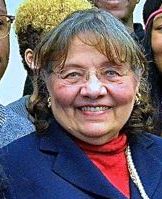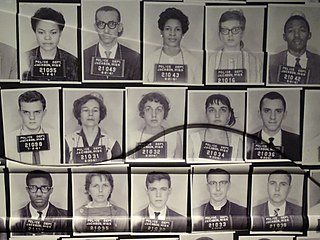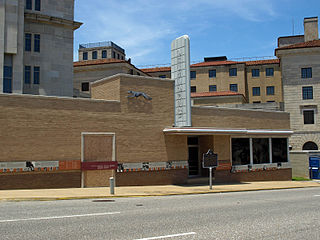Related Research Articles

The Student Nonviolent Coordinating Committee was the principal channel of student commitment in the United States to the civil rights movement during the 1960s. Emerging in 1960 from the student-led sit-ins at segregated lunch counters in Greensboro, North Carolina, and Nashville, Tennessee, the Committee sought to coordinate and assist direct-action challenges to the civic segregation and political exclusion of African Americans. From 1962, with the support of the Voter Education Project, SNCC committed to the registration and mobilization of black voters in the Deep South. Affiliates such as the Mississippi Freedom Democratic Party and the Lowndes County Freedom Organization in Alabama also worked to increase the pressure on federal and state government to enforce constitutional protections.

James Morris Lawson Jr. is an American activist and university professor. He was a leading theoretician and tactician of nonviolence within the Civil Rights Movement. During the 1960s, he served as a mentor to the Nashville Student Movement and the Student Nonviolent Coordinating Committee. He was expelled from Vanderbilt University for his civil rights activism in 1960, and later served as a pastor in Los Angeles for 25 years.

James Leonard Farmer Jr. was an American civil rights activist and leader in the Civil Rights Movement "who pushed for nonviolent protest to dismantle segregation, and served alongside Martin Luther King Jr." He was the initiator and organizer of the first Freedom Ride in 1961, which eventually led to the desegregation of interstate transportation in the United States.

Diane Judith Nash is an American civil rights activist, and a leader and strategist of the student wing of the Civil Rights Movement.
Floyd Mann was an American law enforcement official, who served as Director of the Alabama Department of Public Safety between 1959 and 1963. He is best known for his interactions with the Freedom Riders who passed through Alabama in May 1961.

The Journey of Reconciliation, also called "First Freedom Ride", was a form of nonviolent direct action to challenge state segregation laws on interstate buses in the Southern United States. Bayard Rustin and 18 other men and women were the early organizers of the two-week journey that began on April 9, 1947. The participants started their journey in Washington, D.C., traveled as far south as North Carolina, before returning to Washington, D.C.

Bernard Lafayette, Jr. is an American civil rights activist and organizer, who was a leader in the Civil Rights Movement. He played a leading role in early organizing of the Selma Voting Rights Movement; was a member of the Nashville Student Movement; and worked closely throughout the 1960s movements with groups such as the Student Nonviolent Coordinating Committee (SNCC), the Southern Christian Leadership Conference (SCLC), and the American Friends Service Committee.

Freedom Riders were civil rights activists who rode interstate buses into the segregated Southern United States in 1961 and subsequent years to challenge the non-enforcement of the United States Supreme Court decisions Morgan v. Virginia (1946) and Boynton v. Virginia (1960), which ruled that segregated public buses were unconstitutional. The Southern states had ignored the rulings and the federal government did nothing to enforce them. The first Freedom Ride left Washington, D.C., on May 4, 1961, and was scheduled to arrive in New Orleans on May 17.

The Freedom Rides Museum is located at 210 South Court Street in Montgomery, Alabama, in the building which was until 1995 the Montgomery Greyhound Bus Station. It was the site of a violent attack on participants in the 1961 Freedom Ride during the Civil Rights Movement. The May 1961 assaults, carried out by a mob of white protesters who confronted the civil rights activists, "shocked the nation and led the Kennedy Administration to side with civil rights protesters for the first time."
Charles Person is an African-American civil rights activist who participated in the 1961 Freedom Rides. He was born and raised in Atlanta, Georgia. Following his 1960 graduation from David Tobias Howard High School, he attended Morehouse College. Person was the youngest Freedom Rider on the original Congress of Racial Equality Freedom Ride. His memoir Buses Are a Comin': Memoir of a Freedom Rider was published by St. Martin's Press in 2021.
William E. Harbour was an American civil rights activist who participated in the Freedom Rides. He was one of several youth activists involved in the latter actions, along with John Lewis, William Barbee, Paul Brooks, Charles Butler, Allen Cason, Catherine Burks, and Lucretia Collins.

Joan Trumpauer Mulholland is an American civil rights activist who was active in the 1960s. She was one of the Freedom Riders who was arrested in Jackson, Mississippi in 1961, and was confined for two months in the Maximum Security Unit of the Mississippi State Penitentiary. The following year she was the first white student to enroll at Tougaloo College in Jackson, Mississippi and served as the local secretary of the Student Nonviolent Coordinating Committee (SNCC).
Henry "Hank" James Thomas is an African American civil rights activist and entrepreneur. Thomas was one of the original 13 Freedom Riders who traveled on Greyhound and Trailways buses through the South in 1961 to protest racial segregation, holding demonstrations at bus stops along the way.

Mary Salynn (Selyn) McCollum was the only white female Freedom Rider during the leg from Nashville, Tennessee to Birmingham, Alabama on May 17, 1961.
Robert "Bob" Mants, Jr. was an American civil rights activist, serving as a field secretary for the Student Nonviolent Coordinating Committee (SNCC). Mants moved to Lowndes County, working for civil rights for the remainder of his life. Lowndes County contained the majority of the distance covered by the 1965 Selma to Montgomery march, and was then notorious for its racist violence.
Joseph Charles Jones was an American civil rights leader, attorney, co-founder of the Student Nonviolent Coordinating Committee (SNCC), and chairperson of the SNCC's direct action committee.
Frederick Leonard is an American activist who was involved in the civil rights movement.
Catherine Burks-Brooks was an American civil rights movement activist, teacher, social worker, jewelry retailer, and newspaper editor.

Son of the South is a 2020 American biographical historical drama film, written and directed by Barry Alexander Brown. Based on Bob Zellner's autobiography, The Wrong Side of Murder Creek: A White Southerner in the Freedom Movement, Lucas Till portrays Zellner, with Lex Scott Davis, Lucy Hale, Jake Abel, Shamier Anderson, Julia Ormond, Cedric the Entertainer and Brian Dennehy appearing in supporting roles. Spike Lee serves as an executive producer.

The Anniston and Birmingham bus attacks, which occurred on May 14, 1961, in Anniston and Birmingham, both Alabama, were acts of mob violence targeted against civil rights activists protesting against racial segregation in the Southern United States. They were carried out by members of the Ku Klux Klan and the National States' Rights Party in coordination with the Birmingham Police Department. The FBI did nothing to prevent the attacks despite having foreknowledge of the plans.
References
- 1 2 3 4 5 6 7 8 9 10 11 12 13 14 15 16 17 18 19 20 21 Gonzalez, Tony (May 31, 2013). "Accidental Advocate Looks Back". Appleton Post Crescent . pp. A1, A4.
- ↑ "Zwerg, Jim, 1939-". Civil Rights Digital Library. Digital Library of Georgia. 2011. Retrieved May 16, 2011.
- 1 2 3 4 Simkin, John (April 7, 2011). "James Zwerg: Biography". Spartacus Educational. Archived from the original on April 19, 2014. Retrieved May 16, 2011.
- 1 2 3 "Interview with Jim Zwerg, Civil Rights Activist, United States". Peoples Century. Boston, Massachusetts: Public Broadcasting Corporation (WGBH). Retrieved May 16, 2011.
- ↑ Catsam, Derek Charles (Fall 2007). ""Mister, This Is Not Your Fight!": The 1961 Montgomery Freedom Ride Riots". Studies in the Literary Imagination. 40 (2).
- ↑ Wooten, Deborah A.; Clabough, Jeremy (Fall 2012). "Freedom Riders: A National Geographic Journey in Social Justice through Imagery". Journal of Children's Literature. 38 (2): 51–57. ProQuest 1266034797.
- ↑ "Transcript: Eyes on the Prize, America's Civil Rights Movement, 1954-1985". PBS. August 23, 2006. Archived from the original on February 4, 2017. Retrieved October 6, 2011.
- ↑ "Freedom Rider Jim Zwerg to Speak at TROY's Rosa Parks Museum". ProQuest 867934319.
- ↑ "LISA, SIMEONE. "Interview: John Lewis And Jim Zwerg Discuss The 40Th Anniversary Of The Freedom Riders".[ permanent dead link ]